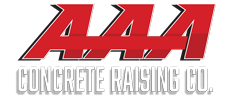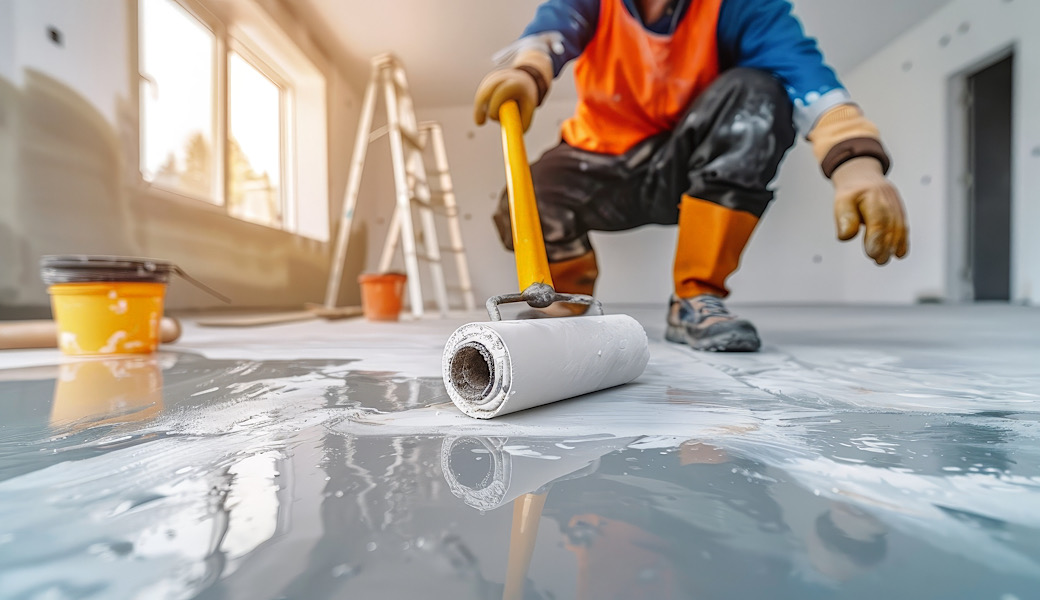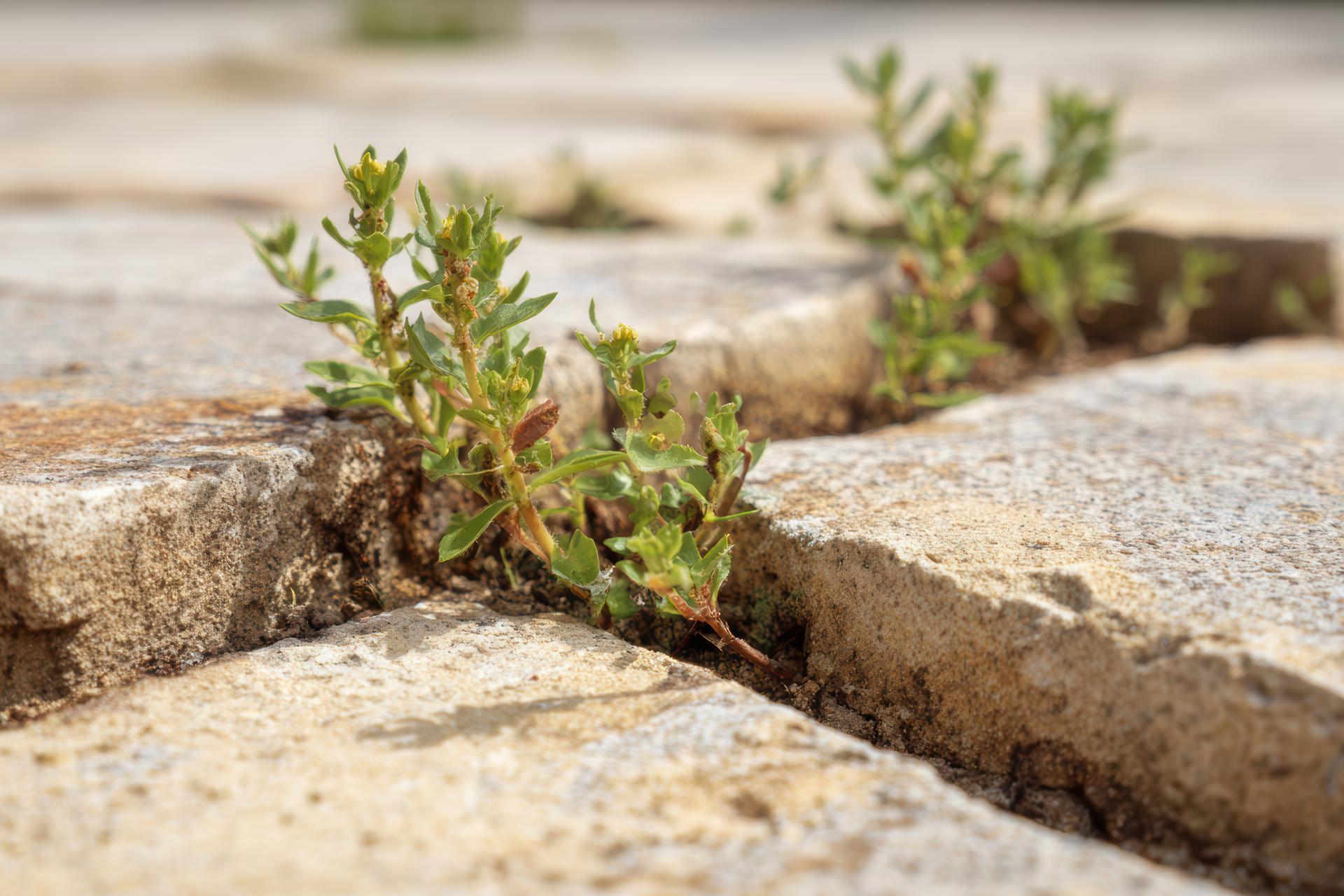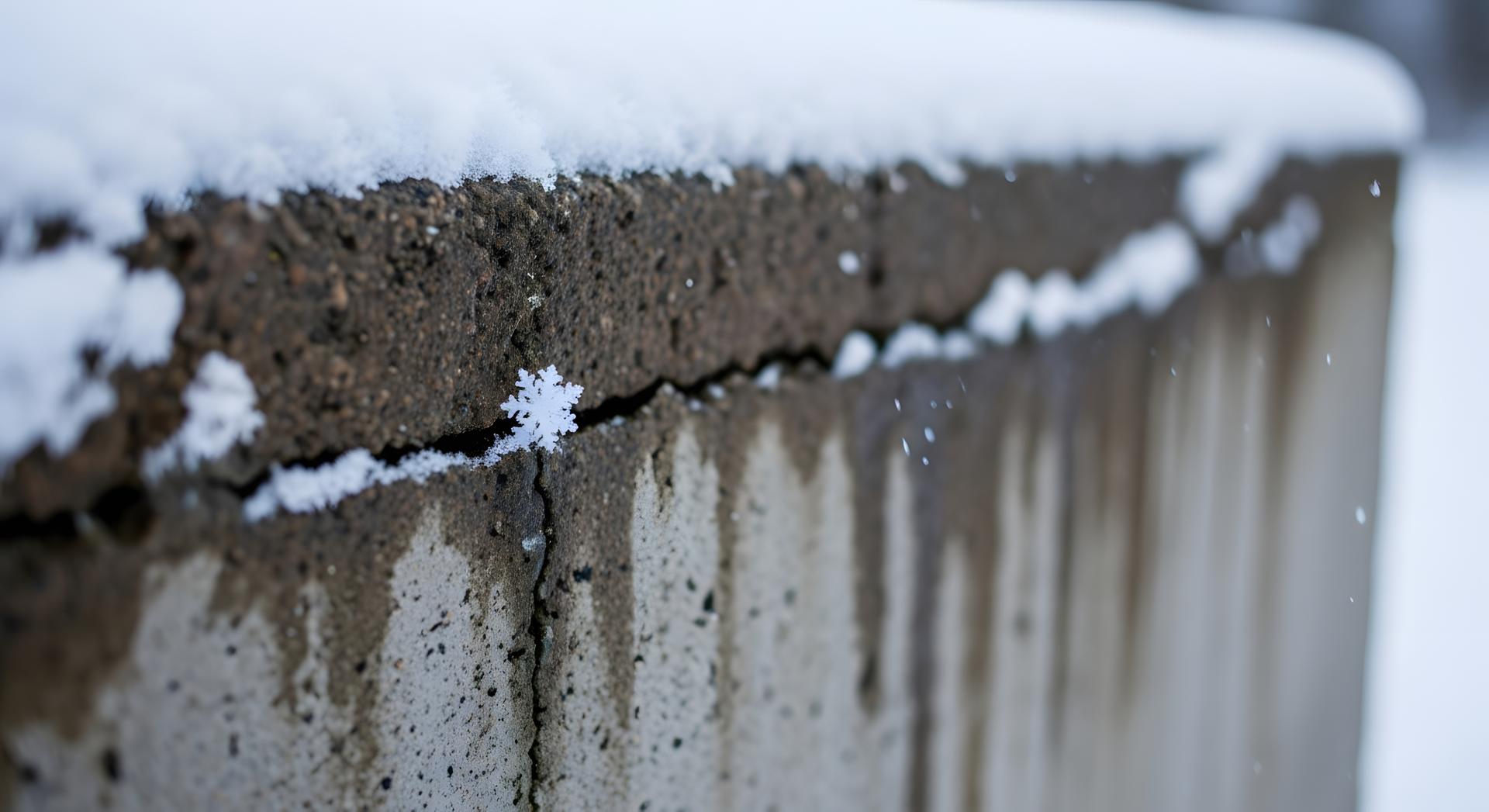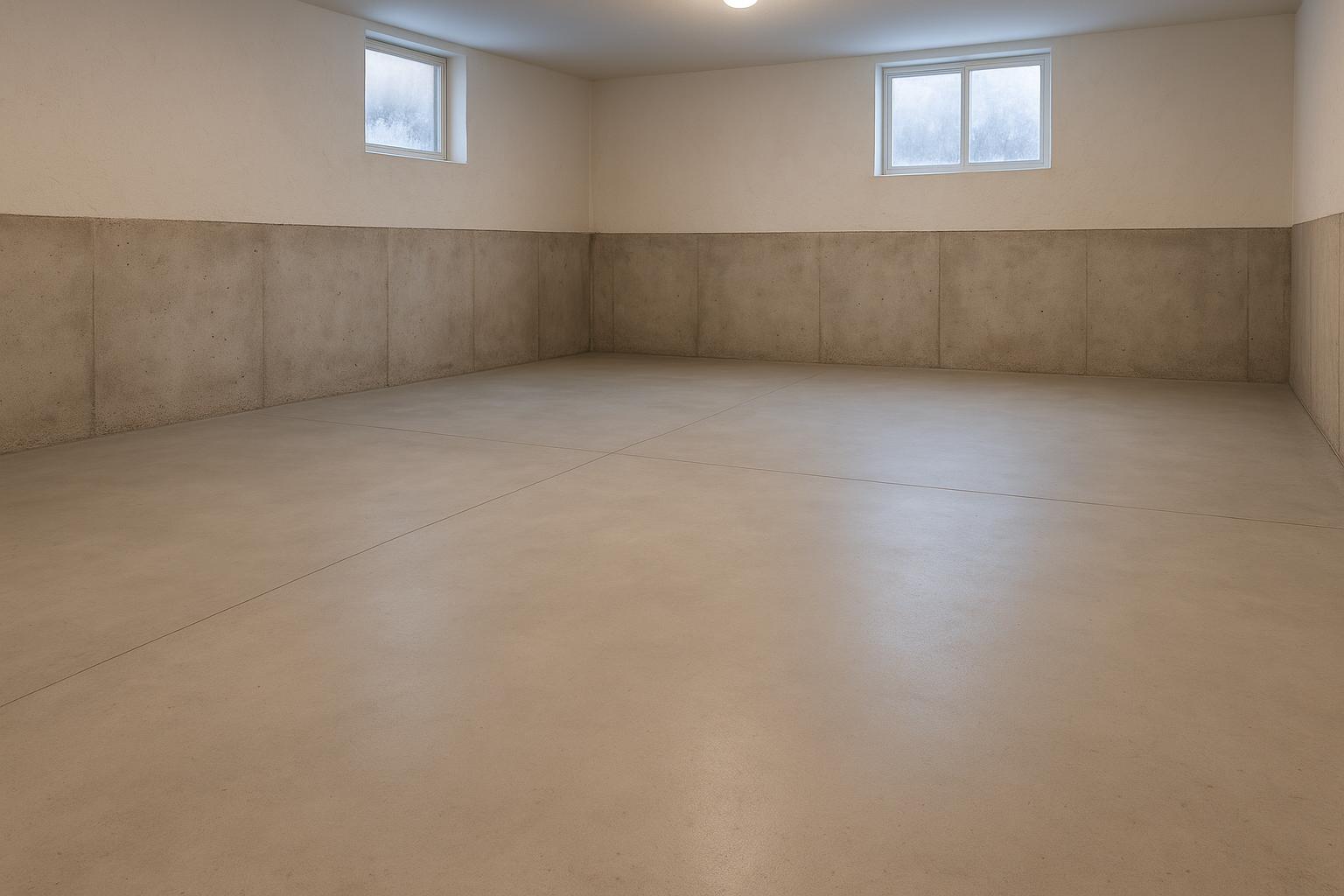As winter approaches, homeowners and businesses in Denver face unique challenges when it comes to maintaining their concrete surfaces. The city’s harsh winter conditions—characterized by freezing temperatures, snowfall, and the infamous freeze-thaw cycle—can wreak havoc on driveways, patios, sidewalks, and other outdoor concrete installations. Without proper care, these conditions can lead to cracking, flaking, and other forms of damage that may result in costly repairs or replacements.
Fortunately, with a few essential winter concrete care tips, you can protect your surfaces from the damaging effects of winter weather and keep them in excellent condition for years to come. This article outlines some critical strategies for maintaining and safeguarding your concrete surfaces during Denver’s coldest months.
Seal Your Concrete Before Winter
One of the most effective ways to protect concrete during the winter months is to apply a high-quality sealer. Concrete sealers provide a protective barrier that prevents moisture from penetrating the surface. This is especially important in Denver, where fluctuating temperatures cause moisture to freeze and expand within the concrete, leading to cracks and surface damage.
There are several types of concrete sealers to choose from, each offering different levels of protection:
Penetrating Sealers: Designed to penetrate deep into the concrete’s pores, these sealers create a shield against water and contaminants. They are ideal for high-moisture areas like driveways and walkways.
Acrylic Sealers: These form a thin, protective film on the concrete surface. They provide moderate protection and are best suited for areas with lighter foot traffic, such as patios.
Epoxy Sealers: Known for their durability and resistance to chemicals and moisture, epoxy sealers are ideal for garage floors or high-traffic areas where added strength is required.
Sealing your concrete before winter arrives can reduce the risk of moisture penetration and protect your surfaces from the damaging freeze-thaw cycles that are common in Denver.
Avoid Using De-Icing Chemicals
During the winter months, it’s tempting to use de-icing salts or chemicals to melt snow and ice. However, many of these products, particularly those containing sodium chloride (rock salt), can damage your concrete by causing pitting, scaling, and spalling. Over time, these chemicals can also corrode any reinforcing steel within the concrete, leading to structural weakening.
Instead of traditional de-icing salts, consider safer alternatives for your concrete:
Sand or Kitty Litter: These materials provide traction on icy surfaces without causing chemical damage. While they won’t melt the ice, they can prevent slips and falls.
Magnesium Chloride: This option is less corrosive and environmentally safer than sodium chloride, making it a better choice for concrete protection. It also works in lower temperatures and is less harmful to surrounding vegetation.
Calcium Magnesium Acetate (CMA): Known for its eco-friendly properties, CMA is another excellent alternative that minimizes risk to concrete and plants. It is an effective de-icer while posing minimal damage to your concrete.
If you do choose to use de-icing chemicals, be sure to select a formula that is labeled as concrete-safe. Additionally, clear snow and ice promptly to minimize the chances of ice bonding to the surface.
Regularly Remove Snow and Ice
Allowing snow and ice to sit on concrete surfaces increases the likelihood of damage from freeze-thaw cycles. As snow melts and refreezes, the expanding water can cause cracks and surface degradation. Regular removal of snow and ice is crucial for protecting concrete during winter.
Here are a few tips for proper snow and ice removal:
Use a plastic shovel: Metal shovels can scratch or chip concrete, leading to premature surface wear. A plastic or rubber-edged shovel is gentler on the concrete surface.
Shovel frequently: Removing snow while it’s fresh prevents it from compacting into ice. Frequent shoveling also makes it easier to manage buildup, which can reduce strain on the surface.
Sweep away excess water: After shoveling, sweep away any remaining water or slush to prevent it from refreezing overnight, which could lead to cracks.
For high-traffic areas such as driveways and walkways, consider installing snow-melting systems. These systems use heating elements embedded in the concrete to keep surfaces clear of ice and snow, reducing the need for manual removal and protecting the concrete from the stresses of freeze-thaw cycles.
Repair Cracks and Damage Before Winter
If you already have cracks or minor damage in your concrete, it’s important to address these issues before winter. Water can enter small cracks, and when it freezes, it expands, causing the cracks to widen and deepen. Over time, this can lead to significant structural damage.
To minimize further damage, make sure to:
Fill cracks promptly: Use a concrete patching compound or caulk to seal existing cracks before moisture has a chance to penetrate. This simple step can prevent further expansion during winter’s freeze-thaw cycle.
Inspect regularly: Regularly inspect your concrete surfaces for signs of wear and tear. If you find small cracks, address them quickly before they worsen.
Seek professional help: For more extensive repairs or if you’re unsure about the condition of your concrete, consult with a professional contractor. Denver’s climate can be tough on concrete, and professionals can recommend the best repair options for long-lasting results.
Use Concrete-Friendly De-Icing Practices
While de-icing products are effective for melting snow and ice, they can cause significant damage to concrete over time. To protect your surfaces during the winter, it’s essential to be mindful of the de-icing methods you use.
Consider these tips for concrete-friendly de-icing:
Use the right products: Opt for de-icing chemicals that are labeled as safe for use on concrete. Products like magnesium chloride and calcium magnesium acetate are less harmful to the surface than traditional rock salt.
Shovel frequently: Regularly remove snow before it has the chance to turn into ice, reducing the need for chemical de-icers.
Limit the use of harsh chemicals: Only use de-icing products in necessary areas and avoid over-application. This helps minimize damage while still preventing hazardous conditions.
Invest in Regular Maintenance
Concrete surfaces require ongoing care, particularly in climates like Denver’s, where harsh winter weather can accelerate wear and tear. To protect your concrete and extend its lifespan, it’s important to invest in regular maintenance.
Some key maintenance practices include:
Annual sealing: Reapplying a concrete sealer each year helps keep your surfaces protected against moisture and other environmental factors. Make sure to do this in the fall, before the first freeze of winter.
Professional inspection: Have your concrete inspected by a professional contractor to catch potential issues early. Small cracks or signs of surface wear can often be addressed with minor repairs before they become major problems.
Preventative measures: Beyond sealing and regular inspection, consider investing in drainage solutions, snow-melting systems, and other preventative measures to help maintain the integrity of your concrete.
By taking a proactive approach to winter concrete care, you can reduce the risk of damage, save money on future repairs, and ensure that your concrete surfaces remain safe and attractive year-round.
Protecting Your Concrete Investment in Denver
Winter in Denver brings unique challenges for homeowners and businesses with concrete surfaces. From extreme temperature changes to heavy snowfall, proper care and maintenance are essential to protect your concrete from the damaging effects of the season.
Whether it’s applying a sealer before winter, avoiding harmful de-icing chemicals, or promptly removing snow and ice, these winter concrete care tips can help keep your surfaces in top shape. And when repairs are necessary, addressing them early can prevent costly damage down the road.
At AAA Concrete Raising, we specialize in maintaining and repairing concrete surfaces for homes and businesses in Denver. If you’re looking to protect your concrete this winter or need help with existing damage, contact us today for expert solutions tailored to your needs.
